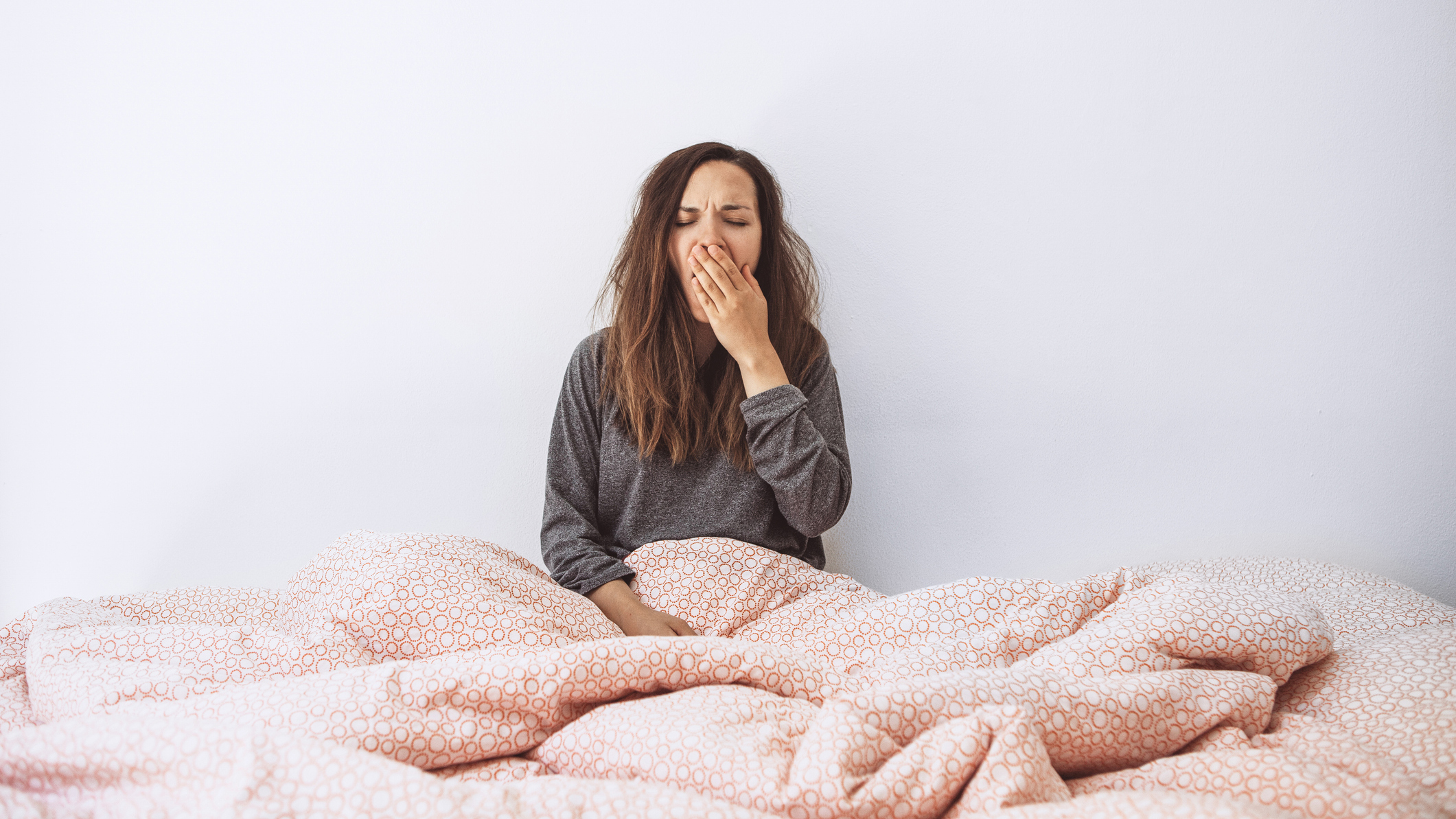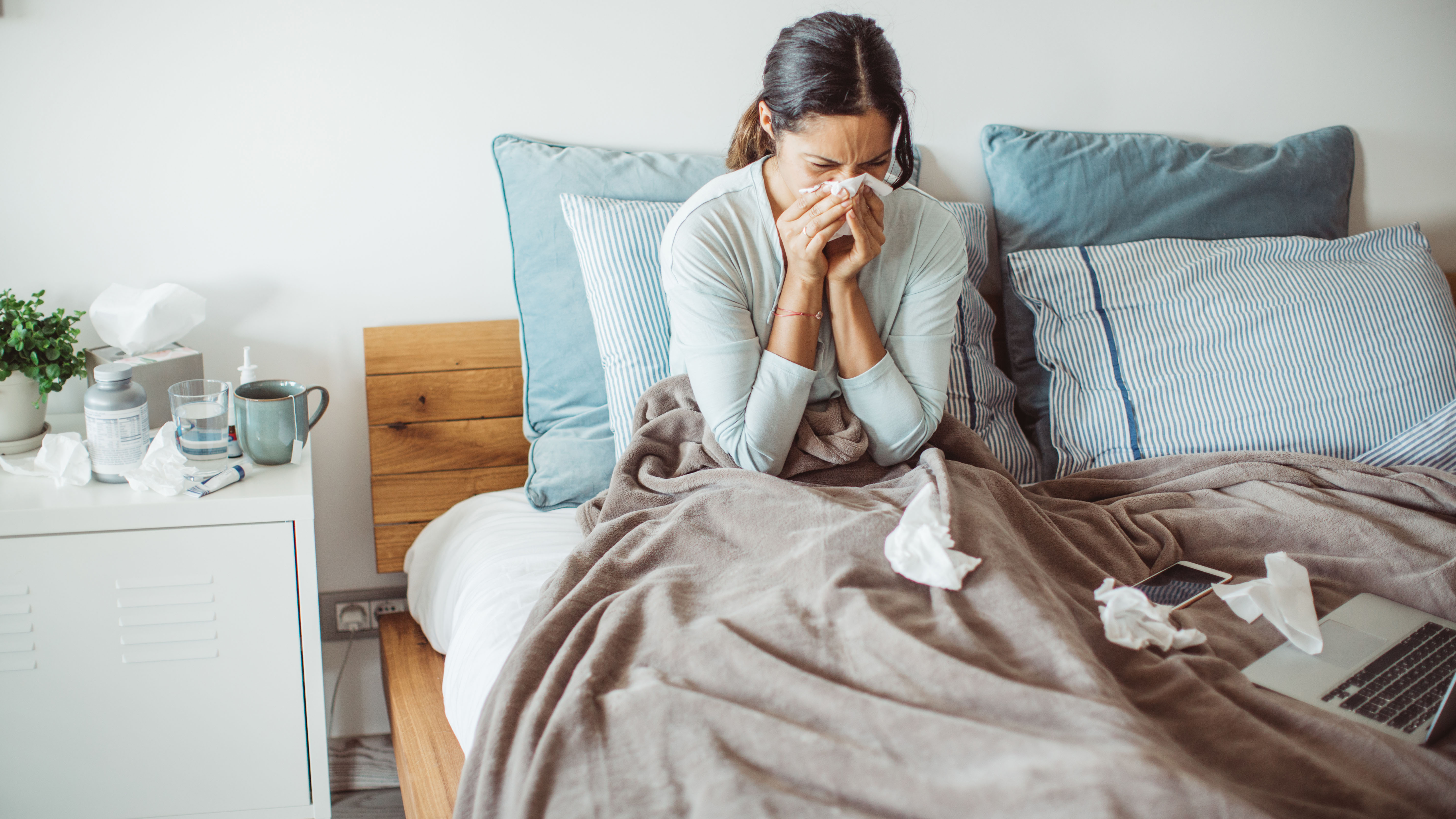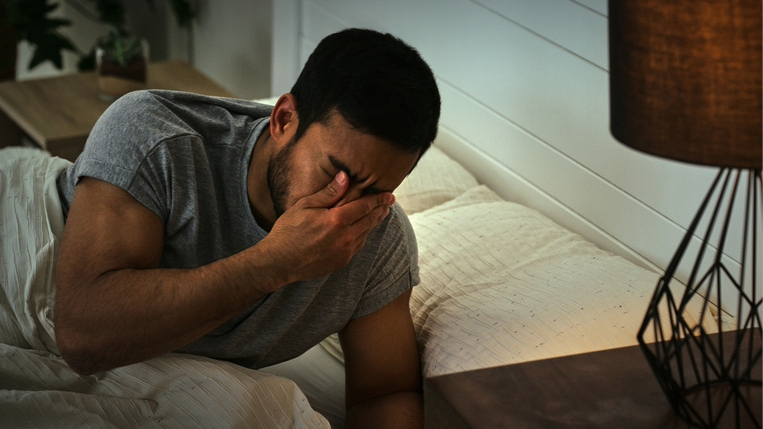8 things that happen to your body when you don't get enough sleep
From munchies to forgetfulness, here are the repercussions of poor sleep, explained by a doctor

Here at Tom’s Guide our expert editors are committed to bringing you the best news, reviews and guides to help you stay informed and ahead of the curve!
You are now subscribed
Your newsletter sign-up was successful
Want to add more newsletters?

Daily (Mon-Sun)
Tom's Guide Daily
Sign up to get the latest updates on all of your favorite content! From cutting-edge tech news and the hottest streaming buzz to unbeatable deals on the best products and in-depth reviews, we’ve got you covered.

Weekly on Thursday
Tom's AI Guide
Be AI savvy with your weekly newsletter summing up all the biggest AI news you need to know. Plus, analysis from our AI editor and tips on how to use the latest AI tools!

Weekly on Friday
Tom's iGuide
Unlock the vast world of Apple news straight to your inbox. With coverage on everything from exciting product launches to essential software updates, this is your go-to source for the latest updates on all the best Apple content.

Weekly on Monday
Tom's Streaming Guide
Our weekly newsletter is expertly crafted to immerse you in the world of streaming. Stay updated on the latest releases and our top recommendations across your favorite streaming platforms.
Join the club
Get full access to premium articles, exclusive features and a growing list of member rewards.
Not to brag, but I am a good sleeper. I generally clock upwards of seven hours snoozing on the best mattress for my body and wake up feeling refreshed in the morning.
But, even when my job literally revolves around getting good sleep, there are times where life gets busy and my carefully crafted sleep routine takes a hit.
I know how important sleep is to oiling the machine that is the human body, and not getting enough of it can disrupt many functions and bodily systems.
From feeling hungrier than usual to struggling to string a sentence together, I can often tell when I haven't slept well.
So, I've reached out to GP and physician Dr. Ola Otulana to understand why this is the case (spoiler: it's mostly to do with brain health and hormone fluctuations). Ahead I'll dig into all the ways your body can be affected by not getting enough shut-eye.
How much sleep is enough?
Like many sleep enthusiasts, and even sleep doctors, we've spent a lot of time mulling over the question of how much sleep we really need.
While the exact amount depends on your age, genetics, activity levels and even where you live, the average adult generally needs between seven and nine hours sleep, according to experts.
"Most of us, throughout our adult lifetimes, need somewhere in or near to 7-9 hours’ sleep a night, routinely,” Dr. Michael J. Breus, Chief Sleep Advisor at Purple and one of the foremost sleep doctors in America, says.
“You might be a person who needs 6 or 6.5 hours, but it’s unlikely that any but a very few of us can function and feel at our best on 5 hours of nightly sleep or less," he continues.

That said, it's not all about quantity. Getting good quality sleep, where you spend ample time in each essential sleep stage, is equally as important as sleeping for a certain duration every night.
8 things that happen to your body when you don't get enough sleep
From reaching for the biscuit tin to catching a chill, your body has many ways of telling you that you're not getting enough sleep. Here's what may happen to your body when you're sacrificing quality ZZZs...
Get instant access to breaking news, the hottest reviews, great deals and helpful tips.
1. You'll be more hungry
I don't know about you, but my cravings spike after a bad night's sleep. I find myself searching for energy in the form of chocolatey snacks or excess caffeine, as my usual daily meals don't seem to touch the sides.
People often feel hungrier than usual after poor sleep, particularly craving high calorie foods and carbs
So, why do I become a sugar- and caffeine-craving fiend when tired? Dr. Otulana explains that it's because tiredness alters the balance of hunger related hormones.
"Ghrelin, which stimulates appetite, tends to rise and leptin, which signals fullness, can drop," He says.
"So people often feel hungrier than usual after poor sleep, particularly craving high calorie foods and carbs," the doctor adds. Phew, at least there's a biological reason for it!
2. It'll be difficult to concentrate
Perhaps more obviously, you'll find it difficult to concentrate on tasks when tired, finding yourself daydreaming about flopping into bed or vacantly staring into the abyss at your desk.
Our attention span can become compromised without adequate rest, says Dr. Otulana.
Essentially, our brains operate in low power mode when we're sleep-deprived, and it's less able to filter out distractions and stay focused.
3. You're more likely to get sick
Sleep is one of the blocks in building a strong defence against illness. "Sleep supports the production of cytokines, which are essential for mounting an immune response," Dr. Otulana explains.

"When sleep is restricted, these protective substances drop, leaving the immune system less able to fend off infections," he adds.
"This can be why people who don’t sleep well are more prone to catching colds or taking longer to recover from illnesses."
4. Your blood pressure can rise
Without rest, our bodies remain in a state of stress which can wreak havoc on the cardiovascular and nervous systems, therefore raising blood pressure.
"Our blood pressure naturally dips when we sleep," says Dr. Otulana. "If sleep is cut short or disturbed and this nightly dip doesn’t occur as it should, our blood pressure can remain elevated."
While this isn't anything to worry about if poor sleep is rare, continuously missing out on quality slumber can cause health problems.
"Chronic sleep deprivation has been associated with an increased risk of developing hypertension because of sustained sympathetic nervous system activity, which essentially means the body remains in a fight-or-flight state for longer than it should," Dr. Otulana explains.
5. You're more likely to forget things
Often find yourself doing laps around your house looking for your wallet (which you're sure you just put down) before heading out the door? It's more likely to happen on days after a sleepless night.
"Sleep is really important for memory consolidation and cognitive processing," explains Dr. Otulana.
"Without adequate rest, you’re likely to feel foggy or distracted, and short term memory becomes less reliable. Over time the chronic sleep loss can affect learning and emotional regulation too."
6. Your mood will be low
Groggy, hungry and low on energy, being tired is no recipe for a good mood. When you're tired, your brain struggles to regulate emotions effectively, which can lead to moodiness and poor mental health.
Fatigue impacts the part of the brain responsible for decision-making and impulse control, making it harder to manage stress and frustration. In turn, even small inconveniences can send you off on an emotional rollercoaster.

7. You're likely to feel cold
There is a close connection between temperature and sleep, and missing out on slumber can cause abnormal fluctuations in body temperature.
"Sleep helps regulate core body temperature through the circadian rhythm," says Dr. Otulana.
"Poor sleep can blunt this control and cause dysregulation. After a disrupted night, the body may struggle to maintain its normal temperature range, leading to sensations of feeling more cold," he explains.
"The reduced metabolic rate and altered thermoregulation after sleep deprivation likely contribute to this."
8. You're more susceptible to headaches
Sleeping on an unsupportive pillow or just getting poor quality sleep can cause you to wake up with a headache and carry that pain through the day.
Poor sleep can increase stress levels and muscle tension
While the exact cause of why poor sleep causes headaches isn't fully understood, says Dr. Otulana, there are several mechanisms that may explain why.
"Poor sleep can increase stress levels and muscle tension and also inflammation, all of which can contribute to headaches," he explains.
"There’s also a link between disrupted sleep and changes in neurotransmitters like serotonin, which are involved in headache pathways. So for some, sleep deprivation can even trigger migraines."

Eve is a sleep tech product tester and writer at Tom's Guide, covering everything from smart beds and sleep trackers, to sleep earbuds and sunrise alarm clocks. Eve is a PPA-accredited journalist with an MA in Magazine Journalism, and has four years’ experience writing features and news. In her role as Sleep Tech Product Tester and Writer for Tom's Guide, Eve is constantly trying out and reviewing the latest sleep products from brands such as Apple, Garmin, Whoop, Hatch, Sleep Number, Eight Sleep, and Oura. A fitness enthusiast who completed the London Marathon earlier this year, Eve loves exploring the relationship between good sleep, overall health, and physical performance, and how great sleep tech can make that relationship even better.
You must confirm your public display name before commenting
Please logout and then login again, you will then be prompted to enter your display name.
 Club Benefits
Club Benefits










